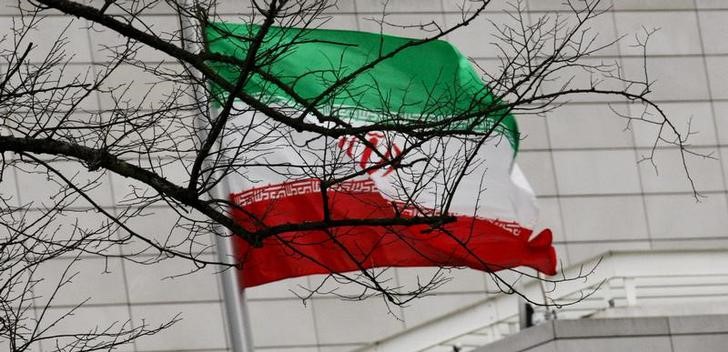(Bloomberg Opinion) -- Markets hate black swans and always will. Ever since Nassim Nicholas Taleb’s book of 2007, any extreme but very unlikely event has been labelled a “black swan” in a reference to the philosophy of knowledge. Just as Europeans were justified in believing that all swans were white, until they discovered Australia and realized that some swans are black, so markets have difficulty dealing with events for which there is little precedent.
With the decade only three days old, its first bona fide geopolitical shock has already shown us the problem. The news that the U.S. had killed Qassem Soleimani, leader of Iran’s Revolutionary Guards’ Quds force, is a significant escalation of a conflict that has simmered for decades. All-out war between the U.S. and Iran is now more likely than it was before. And it is wise to assume that Iran will follow through on its promise of “severe retaliation” for an act that it describes as an act of war.
The situation is unmistakably grave. It happened when liquidity in international markets was low, with many traders still finishing off their Christmas season vacation, and when optimism was rife. The main U.S. share indexes closed last year at record levels, with valuations that looked dangerously stretched, while risk assets around the world had enjoyed a rally on the back of easing tensions in the American trade conflict with China.
Taking all of this into account, the market reaction is remarkably calm. Oil, as measured by Brent and West Texas Intermediate futures prices, has of course risen. But by 9 a.m. in New York, Brent was still no higher than it had been on Dec. 30. WTI briefly hit its highest in seven months (slightly exceeding the $63.38 level it reached in September last year after an Iranian-backed drone strike knocked out production at a Saudi Arabian oil facility), but remains below its highest levels of the last year.
Gold, a traditional haven at times of international uncertainty, rose but still remained just below the six-year high it set last summer at the height of concerns over the trade conflict. Bond yields fell, again showing that investors wanted a haven, but only to levels they set a week or two ago. Stock markets had a bad but unremarkable day. Serious damage was restricted to those companies, such as airlines, which are most exposed to higher oil prices.
Why have markets managed to stay this calm? One big reason is that the price of oil, which is why events in the Middle East generate such concern, is less important than it used to be. The development of shale in the U.S. as an alternative source of supply, and moves toward alternative sources of energy, have reduced global dependence on Middle Eastern oil, and also made it harder to sustain price rises. Even the spike after the attack in September was fully reversed within two weeks.
Further, higher oil prices, if sustained, tend to translate into a cheaper dollar, which at present is an almost universally desired outcome. A cheaper dollar would boost trade, relieve pressure on emerging markets’ dollar-denominated debt, and flatter the overseas earnings of currently overvalued U.S. multinationals. A higher oil price would also help the many shale producers with weak balance sheets strengthen their positions. It would be unlikely to stimulate any great extra supply. So the judgment is that any rise in oil prices would be short-lived and survivable.
Second, there are arguments about exactly what “all-out war” or “severe retaliation” would mean. Iran has a number of options. It could resort to further attacks against U.S. targets in the region, or attempt to close the Straits of Hormuz, or conduct further assaults on Saudi Arabian oil facilities. But with crude less critical to the world than it used to be, all of these represent containable risks from the cold-blooded perspective of the capital markets.
Iran cannot invade the U.S., or threaten it with nuclear weapons. A black swan would be some terrorist attack on U.S. soil to match the scale of the Sept. 11 attacks of 2001. If Iran already has the capability to do such a thing, then the probability of it happening has increased. I have no idea how to measure that probability, and neither has almost anyone responsible for allocating capital.
There is another black swan on the horizon. The U.S. could conceivably resort to an invasion of Iran, along the lines of its 2003 invasion of Iraq. Such a move wouldn’t command domestic support, and any such conflict would probably inflict financial and human costs on the U.S. that would outstrip its wars in Iraq, Afghanistan, or even Vietnam.
We cannot be totally certain that this won’t happen. And it is fair to say that the risk of such a conflict has just increased, from some very, very low number to another very low number. Were it to happen, markets would go through a huge sell-off — but again, measuring exactly what the damage would be in a hypothetical and unprecedented situation is difficult to the point of pointlessness.
That leaves investors with nothing to do but acknowledge the possibility that black swans exist, and for now price in only the most direct effects of the latest escalation of a conflict that has rumbled on as a background risk for many years. This is alarming and unsettling, but investors’ judgment so far seems to be correct.
